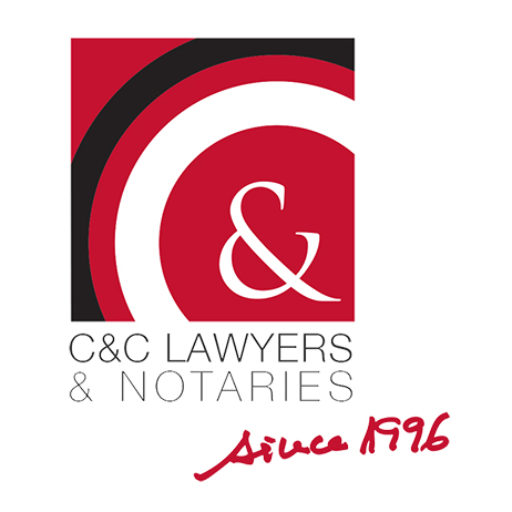
Domingos Ng
2025年8月1日
Leveraging IP Protection to Fuel Macao’s Rise as a Global Tourism Hub Under 'One Country, Two Systems
How can intellectual property protection become a powerful engine for Macao to build a world-class tourism and leisure center under the "One Country, Two Systems" policy?
Intellectual Property Protection and "One Country, Two Systems": The Institutional Advantages for Macao's Tourism Development
The Macao Special Administrative Region is an inalienable part of the People's Republic of China, which is jointly established by the Constitution of the People's Republic of China and the Basic Law of Macao. The "One Country, Two Systems" policy provides Macao with a unique institutional environment, enabling it to integrate into the overall national development while maintaining a high degree of autonomy. This institutional advantage is not only reflected in economic policies and social governance but also provides a flexible and innovative space for the integration of intellectual property protection and the tourism industry. Compared with the Chinese mainland, Macao follows a legal system that is in line with international standards, especially in the field of intellectual property, where its trademark, patent, and copyright systems are closer to European and American standards. This makes Macao more competitive in attracting international investment and protecting creative achievements.
At the same time, as part of China, Macao can leverage the synergy of the Guangdong-Hong Kong-Macao Greater Bay Area to promote cross-border intellectual property cooperation. For example, it can jointly build a tourism IP protection mechanism with Hengqin or develop the cultural and creative industry in linkage with cities in the mainland. The overall planning advantage under "One Country" and the flexibility endowed by "Two Systems" allow Macao to find a unique path in intellectual property protection and tourism upgrading, strengthening local brands while expanding into international markets. Therefore, in the process of building a "World Tourism and Leisure Center", Macao should give full play to the institutional dividends of "One Country, Two Systems" and transform intellectual property into a core driving force for the high-quality development of the tourism economy.
Intellectual Property Protection is a New Engine for Macao to Build a World-Class Tourism and Leisure Center
Under the guidance of the "One Country, Two Systems" policy, Macao's tourism industry has been steadily moving towards the strategic goal of becoming a "World Tourism and Leisure Center" in recent years. However, with the increasingly fierce competition in the global tourism market, relying solely on traditional gambling and tourism resources is insufficient to maintain long-term competitiveness. In this context, how to inject new impetus into Macao's tourism industry with the help of the legal mechanism of intellectual property (IP) protection has become an issue worthy of in-depth discussion.
Opportunities and Challenges for Macao's Tourism Industry
As a unique city where Chinese and Western cultures meet, Macao has rich historical heritage, food culture, and festival activities, which are valuable resources for developing high-end tourism. Nevertheless, facing competition from neighboring regions such as Hong Kong, Zhuhai, and Hengqin, Macao must break through the predicament of homogeneous development and create a more recognizable tourism brand. In addition, with the rise of the digital economy, emerging models such as smart tourism and virtual experience have put forward new requirements for the traditional tourism industry. In such an environment, intellectual property protection can not only protect Macao's creative achievements but also become a key factor in promoting the transformation and upgrading of the tourism industry.
How Can Intellectual Property Empower Macao's Tourism Industry?
Intellectual property covers multiple categories such as trademarks, patents, copyrights, and industrial designs, and its application in the tourism industry can be carried out at several levels. Firstly, trademark protection can ensure the brand value of Macao's characteristic tourism projects, such as the Grand Prix, Macao International Food Festival, and Macao Light Festival, preventing them from being counterfeited or misused. For instance, if Macao can successfully register "Macanese cuisine" as a Geographical Indication, it will not only enhance its international popularity but also promote the development of related catering industries and attract more food lovers to experience it.
Secondly, copyright protection is crucial for the cultural and creative industry. If Macao's cultural assets such as historical urban areas, traditional handicrafts, and festival performances can be protected through the copyright system, it will encourage the production of more original content, such as cultural and creative products, film and television works, and music performances, further enriching the tourism experience. In addition, with the integration of technology and tourism, innovative applications such as AR navigation and smart hotel services also rely on patent protection to ensure that enterprises' R&D investments receive reasonable returns, thereby promoting the sustainable development of the industry.
Improving the Intellectual Property System to Enhance International Competitiveness
At present, although Macao's intellectual property legal framework has been established, there is still room for optimization. Firstly, it can learn from the experience of Hong Kong, Singapore, and other places, strengthen law enforcement, and increase the compensation standards for infringement acts to enhance the deterrence of the law. Meanwhile, Macao can consider joining more international intellectual property conventions, such as the Madrid Agreement, to enable local enterprises to protect their brand rights and interests more conveniently on a global scale, which is particularly important for attracting international convention and exhibition and entertainment enterprises to settle in.
In addition, the government can promote the industrial integration strategy of "tourism + IP". For example, it can set up special funds to support small and medium-sized enterprises in applying for trademarks or patents or cooperate with universities to cultivate interdisciplinary talents in intellectual property and tourism management. Public education is also crucial. Many cultural and creative practitioners or catering operators may not know how to protect their creative achievements. Therefore, the government can improve industry’s awareness of intellectual property through workshops and fast registration channels.
Conclusion: Intellectual Property as a Strategic Asset of the Tourism Industry
In today's increasingly fierce competition in the global tourism market, if Macao wants to truly become a "world-class tourism and leisure center", it cannot rely solely on traditional resources but must regard intellectual property as a core strategic asset. By strengthening legal protection, promoting innovative applications, and enhancing internationalization, Macao's tourism industry will be able to break through the existing framework and achieve a higher level of development. In the future, the SAR government, enterprises, and academic circles should work together to create an innovation-driven tourism ecosystem with sound rights protection, so that intellectual property can truly become a powerful engine for promoting the leapfrog development of Macao's tourism industry.
A Practical Perspective on How Intellectual Property Can Empower the Upgrading of Macao's Tourism Industry
As a practitioner who has been engaged in the field of intellectual property for more than four years, I deeply realize that a sound IP protection mechanism is crucial to industrial development. For Macao to build a world-class tourism and leisure center, it cannot only focus on hardware construction but also needs to establish a sound intellectual property ecosystem.
In practical work, I have observed the common dilemmas faced by many tourist cities: many original contents are copied, characteristic brands are preemptively registered, and cultural and creative works lack protection mechanisms. For example, the visual design of a local characteristic festival activity was used commercially by surrounding merchants without authorization. Due to the failure to timely register the copyright and lay out the trademark, it was difficult to safeguard rights. To avoid such situations, Macao must establish a forward-looking IP protection strategy.
I suggest that, first, for Macao's unique cultural elements (such as Macanese culture and world heritage buildings), systematic trademark layout and copyright registration should be carried out. Secondly, it is suggested that the Macao government set up a fast review channel for tourism IP. There have been successful international cases, such as Singapore's accelerated review mechanism for the cultural and creative industry, which has greatly improved enterprises' enthusiasm for innovation.
In addition, under the "One Country, Two Systems" framework, Macao can give full play to the advantages of its legal system and learn from Hong Kong's experience in intellectual property commercialization. For example, Hong Kong's IP financing model allows enterprises to obtain loans with patents and trademarks as collateral, which will be a great help for small and medium-sized cultural and creative tourism enterprises in Macao. Intellectual property pledge refers to evaluating the intellectual property and then pledging it to financial institutions such as banks to obtain loans. At present, the mechanism of using accounts receivable and deposits as collateral for loans has become increasingly mature, and there are many related financial products. However, in Macao, due to the difficulty in evaluating the value of intellectual property, many commercial institutions, such as banks, still dare not launch patent pledge loan products.
Finally, it must be emphasized that intellectual property protection is not an end but a means to promote innovation. Macao needs to cultivate a group of interdisciplinary talents who understand both the tourism industry and IP management, so that intellectual property can truly become an "invisible engine" driving the upgrading of the tourism industry. This not only requires policy support but also the joint efforts of industry practitioners.
Contact Us!
Should you have any questions or require further information, please do not hesitate to contact us. We are always ready to provide comprehensive services related to intellectual property in Macau, as well as assistance with all legal matters.
Author: Domingos Ng
Position: Associate IP Executive
Company: IPSOL Macau Intellectual Property Agency Limited (澳門智陽知識產權代理有限公司)
Let's get in touch: domingos@ccadvog.com



